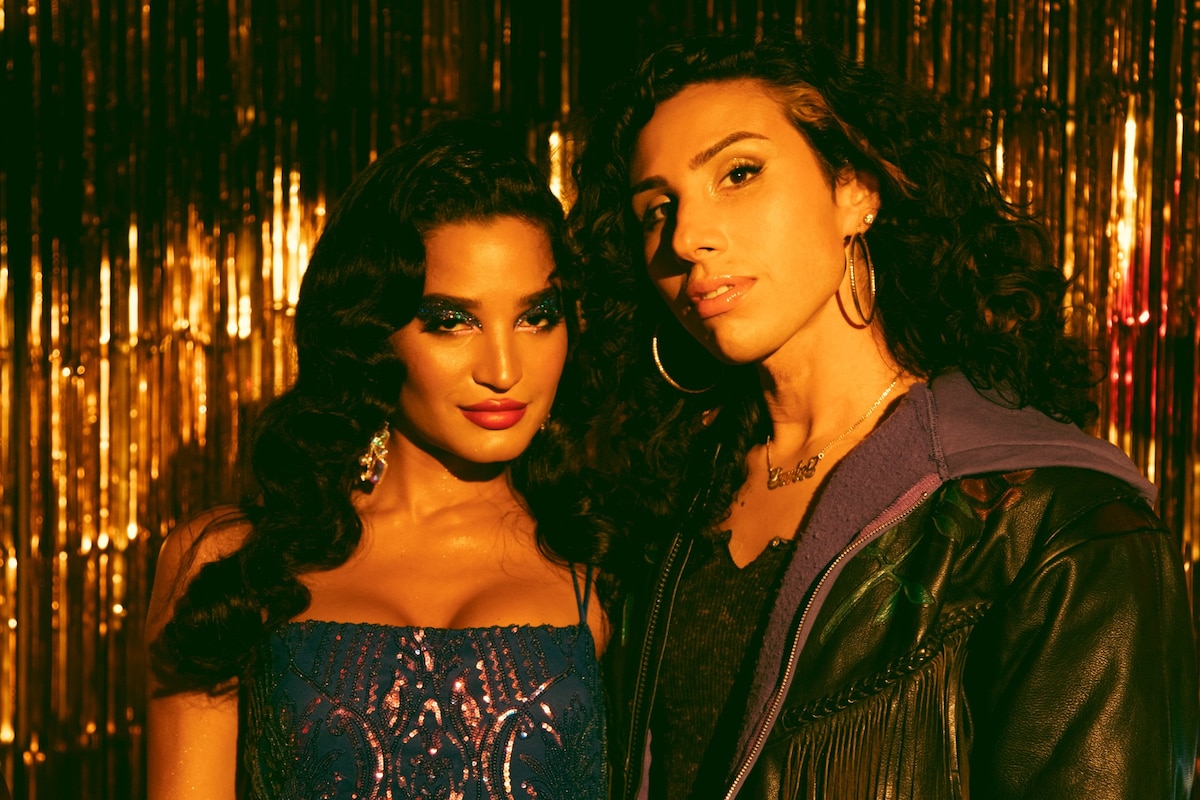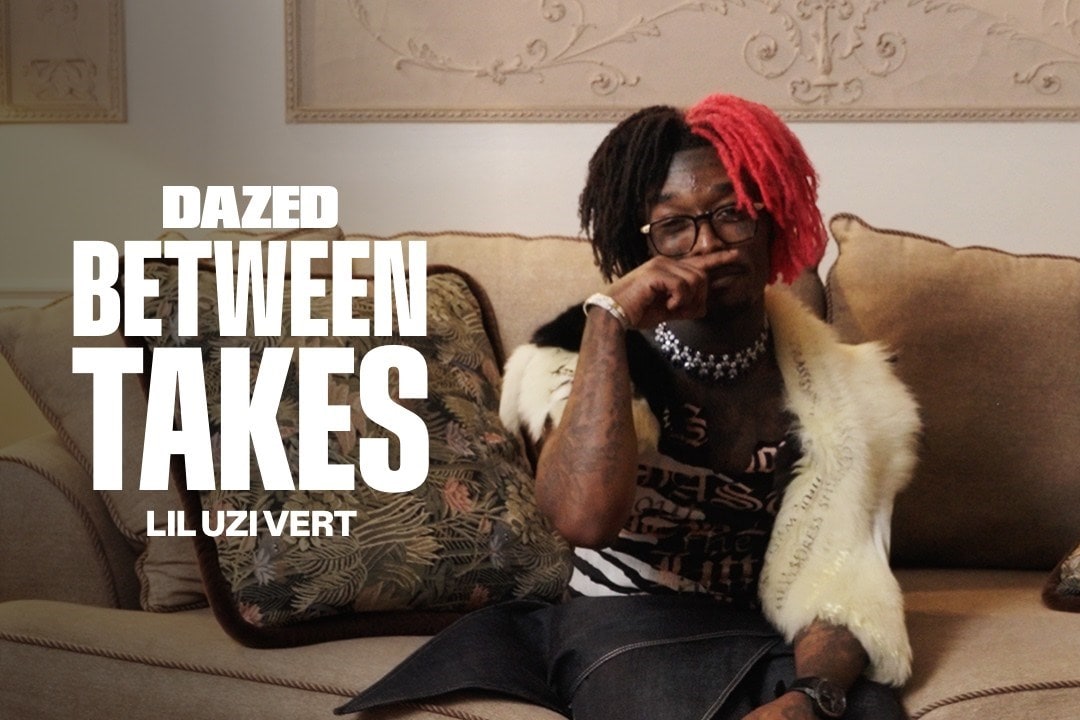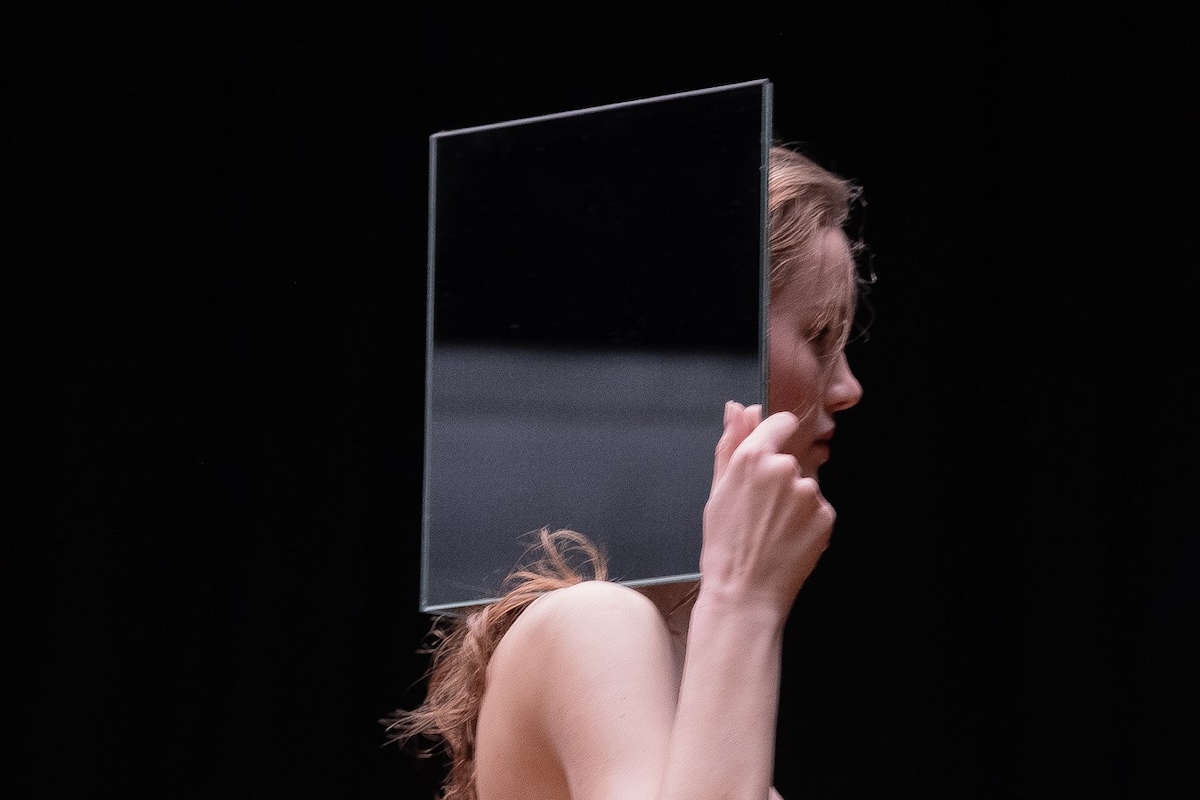For River Gallo beauty is all about honesty. “I feel most beautiful when I’m being truthful – when I’m wearing what I want to wear, moving how I want to move, speaking how I want to speak,” they tell me. But this alignment hasn’t always come easily for the filmmaker who identifies as intersex and trans. “Being intersex, you grow up with all these different layers – socialised as a boy, but feeling a different truth internally,” Gallo says. “You’re living in a body that doesn’t align with the rigid definitions society gives you.” That experience of multiplicity is central to how Gallo understands intersex beauty – an experience they describe as “psychedelic”. To them, “Beauty is performance art. It’s drag. It’s a story you get to tell every day”.
That honesty is laced into Ponyboi, the debut film which Gallo co-wrote and stars in, and the first to feature an intersex actor playing an intersex lead. Set on Valentine’s Day in 2003 in New Jersey, the film follows a sex worker caught in a bad drug deal, hurtling into a story of self-discovery and escape. With a star-studded cast that includes Dylan O’Brien, Indya Moore and Victoria Pedretti, the film resists the usual tropes of coming-of-age or character study. Instead, it places an intersex protagonist at the centre of a gritty mob thriller – a genre that rarely, if ever, makes space for someone like them.
Beauty plays a key role in the film, enriching the narrative with its Y2K femininity and working-class aesthetics. “It’s Jersey, it’s working class, it’s French tips, it’s short shorts, it’s Springsteen, it’s the car, it’s the diner,” Gallo says, describing the direction of hair and make-up as being “portals” within the film. “Beauty became a way of revisiting a version of girlhood I never got to live fully. It was my chance to step into the fantasy I longed for back then.” When creating the looks for the film, Gallo drew inspiration from the beauty staples of the era and its “slightly tragic but fabulous” aesthetic. The crunchy curls, pencil-thin eyebrows, frosty baby blue eyeshadow and black eyeliner in the waterline, all help to replicate the aesthetic of the time.
Adding to this storytelling is Bri Trischitta, head of make-up on Ponyboi. “Every make-up, tattoo and nail choice was intentional to both the era and each character’s identity,” she explains. Every detail was considered, even down to the protagonist’s missing rhinestones on their bedazzled lashes. “We really had to imagine how their beauty make-ups would evolve through all the blood, bruising, sweat and tears,” says Trischitta.

The release of Ponyboi lands at a time of mounting political hostility towards queer, trans and intersex communities, making the moment particularly poignant for Gallo. One of the most memorable moments in the film is a conversation between Gallo’s character and Charlie, played by Moore. “We’ve never had a movie where a trans character and an intersex and trans-questioning character are literally face-to-face, talking about the differences and similarities of their experiences – and coming to the realisation that their oppression in the context of the patriarchy is one and the same.”
Despite a growing public conversation around intersex identity, Gallo feels there’s still hesitation that surrounds it. The intersex experience, they explain, remains marked by shame, sometimes in ways people aren’t even fully conscious of. “There’s a lot of unconscious resistance – on intersex people and non-intersex people – to really dive into the depths and intricacies of intersex identities.”
Beauty is performance art. It’s drag. It’s a story you get to tell every day – River Gallo
Ponyboi marks just the beginning of the director’s effort to break down this resistance, and build a lineage of intersex art. The intersex community has yet to form its own distinct culture, largely due to limited connection between its members, they say. It’s an absence that has pushed Gallo to look outward towards other marginalised communities who’ve worked through adversity – as a way of imagining what intersex art and legacy could become. “Especially as a Latinx person, looking towards people – specifically people of colour – who have literally gone through and achieved so much beyond what would seem to most people as insurmountable trauma.” They cite a list of figures who remind them that becoming who you are meant to be is possible, even when the world feels structurally opposed to your existence.
“I want people to embrace and become intimate with the uncertain parts of themselves that are still becoming,” Gallo says. “The only way forward is to accept that something fundamental about you is changing, and you need to handle that with care and with a community around you.” They hope audiences leave Ponyboi understanding that “wholeness, freedom, dreams, hopes and personal agency are not dependent on being perfect or figured out in any one moment – everything is always en route to a different version of becoming.” Gallo also wants the film to inspire viewers to engage in the dialogue of intersex and trans rights.
Ponyboi is out now



